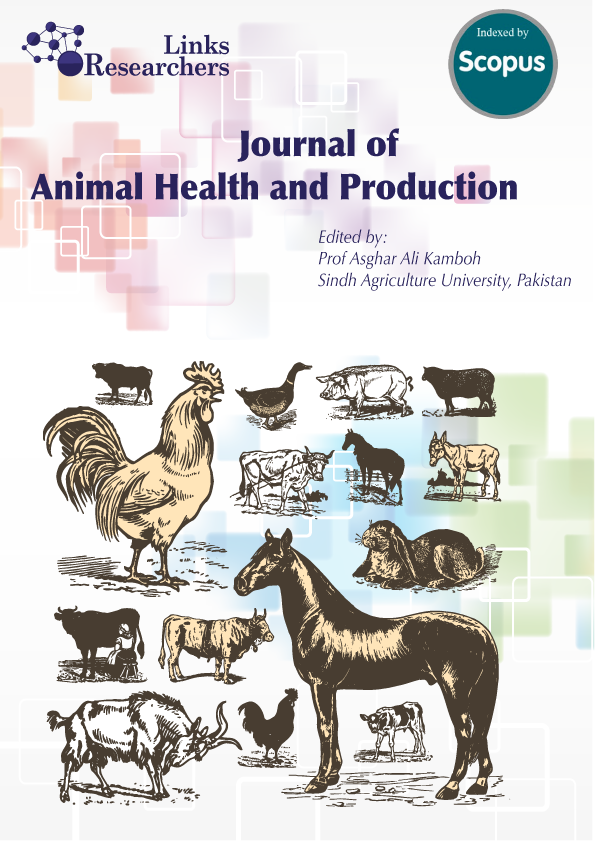Using Bacteriophage in Poultry Diet as Therapeutics Against Escherichia coli in Broiler Chickens
Using Bacteriophage in Poultry Diet as Therapeutics Against Escherichia coli in Broiler Chickens
Dheyaa Ali Aljuhaishi*, Firas Hussain Kadim Albawi
ABSTRACT
Bacteriophages (BP) are viruses that invade bacteria and propagate inside them, leading to the lysis of the bacterial cells. The aim of this study was to investigate the effect of adding BP to the broiler’s diet and its effect on body performance, bacterial population of the gut and immune responses against infectious bronchitis. For this purpose, a total of 250 one-day-old Ross308 broilers were randomly allotted five treatments with two replicate pens of 25 birds per pen. Different treatments regimens were practiced where G1 chicken were orally inoculated with E. coli at a dose of 0.5 ml containing 7.5x106 CFU/ml and were treated with bacteriophage (3.2×108PFU/g) through feeding. In the G2 group, chicken were orally inoculated with E. coli at a dose of 0.5 ml containing 7.5x106 CFU/ml and were treated with enrofloxacin 100mg/kg and neomycin 200mg/kg orally through drinking water. In the group G3, chickens were orally inoculated with E. coli at a dose of 0.5 ml containing 7.5x106 CFU/ml and were treated with both combination bacteriophage 3.2×108PFU/g with feeding and enrofloxacin 100mg/kg and neomycin 200mg/kg orally through drinking water. The G4 acted as control group, where chickens were orally inoculated with E. coli at a dose of 0.5 ml containing 7.5x106CFU/ml whereas G5 control group remained untreated and un-infected. Parameters of body weight, weight gain, and feed conversion were observed. Data analysis indicated a statistically significant (P < 0.05) increased value of body weight, weight gain, feed consumption and feed conversion in G1, G3 then G2 and G5 respectively, as compared to G4 (control positive). Meanwhile, bacteriophage fed birds had higher Lactobacillus and lowered coliform bacteria counts in G1, G3 than G2 and G5 respectively, compared to G4 (control positive). The bacteriophage additives groups showed significant (P<0.05) increased in Ab titer against IBV. In conclusion, bacteriophage 3.2×108PFU/g additives to broiler chicks feed enhanced growth performance, decreased number of E. coli in the gut and showed significant (P < 0.05) increased in antibodies titer against IBV.
To share on other social networks, click on any share button. What are these?





